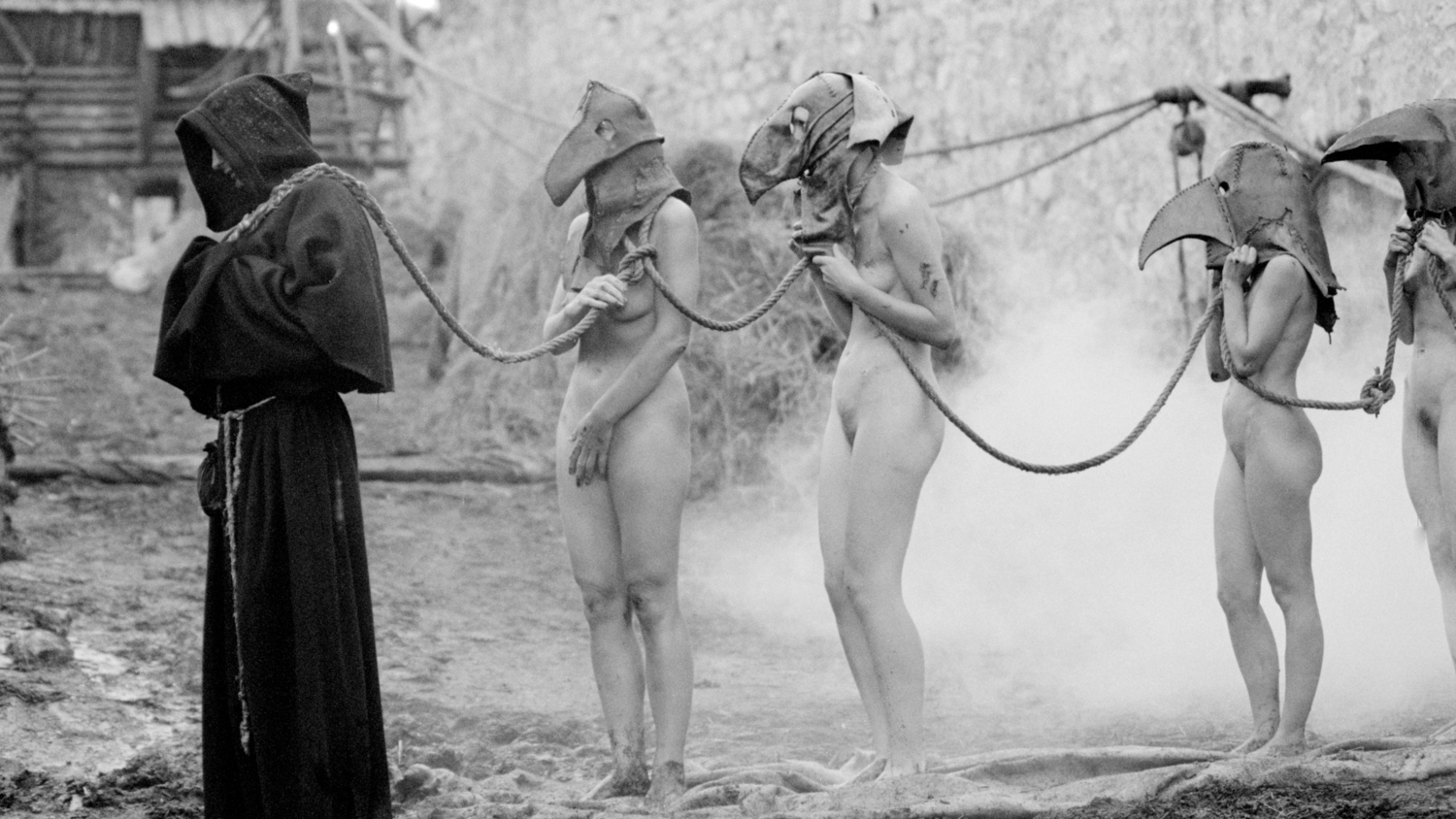Final Destination 5: Premonitions, Rules And Flying Limbs
 At the heart of the Final Destination film series is a pretty dopey high concept, that death doesn’t like to be “cheated”. They rest on a set up in which a group of people manage to survive an elaborate disaster through the actions of one member, who has a premonition. Then the survivors begin to die in a series of highly unlikely accidents. These are accidents, no-one is seen to be controlling the events, no Jason with a machete, just a series of unfortunate coincidences that lead to the death of one of the characters.
At the heart of the Final Destination film series is a pretty dopey high concept, that death doesn’t like to be “cheated”. They rest on a set up in which a group of people manage to survive an elaborate disaster through the actions of one member, who has a premonition. Then the survivors begin to die in a series of highly unlikely accidents. These are accidents, no-one is seen to be controlling the events, no Jason with a machete, just a series of unfortunate coincidences that lead to the death of one of the characters.
We as the audience are not supposed to see these as accidents of course but the work of a vague concept of a murderous character, ‘Death’. He’s the one that doesn’t like to be cheated. None of that, of course, really makes any sense or follows any sort of logical thinking but perhaps one of the franchise’s greatest strengths is that it sells this concept quite successfully and when we see the water trickling across the floor we believe it’s purposefully doing it, although this is often overdone in a lot of scenes throughout the franchise. The ‘rules’ of the franchise, regarding the need for the chosen people to die and die in order, are excepted by many and it was with great surprise that upon reading reactions to the latest film and its supposed rule changes that I found that people actually believe in there being actual tangible rules to the films.
This latest film seems, on one level at least, reiterates something that has surely been the case throughout the entire franchise – there is only one ‘rule’, everyone that dies in the premonition will ultimately die and on their way to their ultimate demise they think they can somehow change this. But they can’t.
The most amusing part of this latest instalment and its retconning of the film series is that for ten years now (or thereabouts), William Bludworth (Tony Todd) has been convincing these hapless idiots that there’s a way to save themselves from death, if only they somehow gamed the system. What a malicious and baffling character he is, turning up to convince strangers that they can avoid death when they obviously can’t.
There’s also an amusing parallel one could draw with the basic nature of life and the innate thanatophobia that we all have, to greater and lesser degrees, and in many ways the Final Destination films, most probably accidentally, make some pretty profound comments about the human relationship with death. The one ‘rule’ mentioned above is true of life in general, one thing we can be sure of is that we’re all going to die and there’s no escape, no matter how much you try and cheat and strive to get away from it.
But you’re just here for the gruesome deaths, right? You better be because this is what Final Destination 5 is really all about, a celebration of this wonderfully macabre love, the desire to see people die in increasingly elaborate and gory ways. This is a box that Final Destination manages to tick quite satisfyingly with a number of toe-curling scenes in which tension is built until the release of a crescendo of carnage. Director Steven Quale has some fun along the way with a couple of instances in which the audience is treated to shots that suggest what is going to kill the particular victim, only for something far worse too befall them. This bait and switch is most pronounced in a scene, the film’s strongest by a mile, in which a gymnast walks along a bar on which there rests a screw ready to jab right in her foot. The tense sequence is played for as long as Quale can possibly get away with and the gruesome accident he ends on is so absurd that it supplies an entirely apt moment for a cathartic release of laughter.
These death sequences have defined the franchise since its inception and in the absence of a masked slasher, for instance, a dopey idea about fate provides the killer that stalks the cast. In many horror franchises the killer has become the star but the Final Destination films have seemed to skip over the period in which we want the killer’s prey to escape, instead seemingly relying on the audience willing the characters towards their deaths. In Final Destination 5 this is also relatively easy and lacking in moral weight, with a cast of characters that barely manage to even hint at a sense of believability, let alone likeablilty.
There are two types of characters in Final Destination 5, the misanthropic ones and the bland ones. If one of the first group dies then we don’t care because they are so unlikeable and if one of the latter group dies we don’t care because they barely register. One significant problem with this approach though is that the central couple in the film, Sam (Nicholas D’Agosto) and Molly (Emma Bell), are so impossibly bland that at times the relationship between items of furniture in the background carries more emotional weight.
Bell, the jury’s out on D’Agosto, is actually a pretty decent (or pretty and decent) actress, as Joe Lynch’s gripping Frozen proved last year but here she has so little to do. Her narrative purpose appears to rest on her constantly looking like she’s about to cry in the first half of the film, presumably to suggest that the two not dying should somehow matter to the audience, and then hint at an extra level of peril in later scenes by looking a bit scared.
The film is nowhere near as mean-spirited towards its characters as the third film though, which had a script that seemed to be written with the intention of making you hate every character. There are some similar hatefully written characters in Final Destination 5 though, the deeply unpleasant Isaac (P.J. Byrne) for instance, and their inclusion probably has more to do with an attempt to avoid making the audience feel too bad for laughing at their deaths than anything else.
There is an attempt at a character centred narrative drive to the film in the conflict between Molly and Sam, the two split up and get back together, and Sam’s desire to move to Paris. There’s a problem with this storyline though. Less than halfway into the film not only did I know that they weren’t going to make it to Paris but I knew that they were going to leave for Paris only for their plane to explode shortly after leaving the airport. Did I have a premonition in the cinema that led to this amazing prediction. No, simply being observant led to this conclusion, a conclusion that robbed the rest of the film of a lot of narrative tension or drama. Reasonably early in the film Isaac finds a gift voucher for a massage parlour and thanks to an ‘unnecessary’ close-up of the voucher and its 2001 expiry date, the year in which Final Destination 5 was set was now very clear. My mind immediately raced to the conclusion that this was probably therefore a prequel to the first film and the fact that the group of survivors in the first film almost died on a plane bound for Paris left me in little doubt as to where this film was headed.
I’ve never believed that spoilers ruin a film but when the filmmakers explicitly confirm a possible twist already hinted at, by the clothes, the mobiles and the cultural references, then it leaves you treading water somewhat, unless the film manages to remain interesting and engaging. Somewhat engaging and entertaining as the rest of the film is, something is lost a little in the reveal.
This predictability regarding the ending is oddly fitting for the Final Destination franchise though, a film series that has always hung on a simple premise that concerns the ultimate end of the principal characters. The outcome might be inevitable and one that you no longer really care about, if you ever did, but with enough entertaining grand guignol along the way few will likely leave the film without being somewhat entertained. Final Destination 5 might be predictable and exceptionally lightweight but there is a lot of fun along the way and as the montage that plays over the credits suggests, this film is giving fans of the franchise what they really want, entertaining and cathartic scenes of people dying in ludicrous ways.





